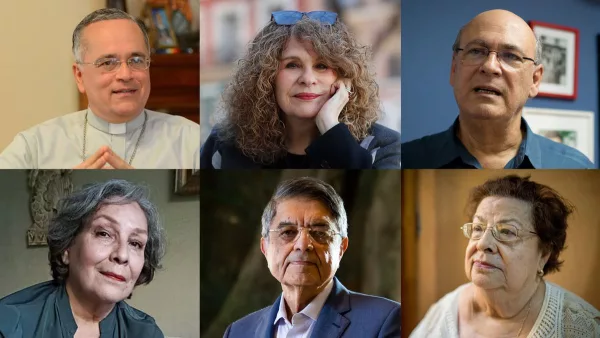A court in Nicaragua stripped another 94 opposition figures of their citizenship on February 15. The decision comes a week after the Nicaraguan government deported and revoked the nationality of 222 political prisoners. Judge Ernesto Rodríguez accused the dissidents of “criminal acts to the detriment of peace, sovereignty, independence and self-determination of the Nicaraguan people.” They were also accused of committing economic sabotage for calling for boycotts against the government.
Among the accused were national poet Giaconda Belli and renowned author Sergio Ramírez, who have long been outspoken critics of President Daniel Ortega and his government. Religious figures, activists, politicians and journalists were also among the targeted, most already living in exile. The judge added that their properties would be seized and confiscated.

Photo by EL PAÍS / AGENCIAS / RR SS.
The United Nations condemned the government’s actions and stated that they are in violation of international law. Multiple governments, including the United States and Colombia, also condemned the attacks. The government of Gustavo Petro stated that “Colombia has registered with revulsion the measures taken arbitrarily by the head of government of the sister and long-suffering Republic of Nicaragua against citizens of their country whose only crime has been to defend democracy, the right to criticism and universal human rights.”
Daniel Ortega has ruled Nicaragua since 2007. He previously served as president from 1979-1990. Following a 17-year absence from the presidency, he was reelected in 2007. His government is widely regarded as authoritarian and has faced heavy criticism for alleged human rights abuses and lack of press freedom. According to the Interdisciplinary Group of Independent Experts for Nicaragua, his government has committed crimes against humanity and claims that Nicaraguan authorities assassinated, imprisoned and tortured those who have spoken out against their policies.
Stripping Nicaraguans of citizenship is a new form of punishment and political intimidation being implemented by the Ortega regime. Critics of the government have long been violently repressed, most notably in 2018 when security forces killed more than 350 protesters in the span of a year. Since then, dozens have been taken as political prisoners, and countless more have fled the country.
The governments of Spain, Chile, and Argentina have offered asylum and citizenship to the exiles. The United States has also offered support, providing a two-year temporary stay to the Nicaraguans. Over 300,000 people have fled Nicaragua since Ortega’s crackdown in 2018, mostly to Costa Rica and the United States. The number is expected to rise in the following weeks as the government intensifies its crackdown on dissent.
Cover image by: Inti Ocon / AFP






